Faculty 2012
Nikolaus Forgó

Nikolaus Forgó (© Barbara Mair)
Nikolaus Forgó
Professor of Law, Head of Department of Innovation and Digitalisation in Law, University of Vienna; head of the LLM-program on information and media law at the University of Vienna; expert member of the Austrian Data Protection Board and the Austrian AI Advisory Board.
Selected Publications: together with Prainsack B.: Why paying individual people for their health data is a bad idea comment. in: Nature Medicine (2022 October); co-author of: White Paper: Data Solidarity. The Lancet & Financial Times Commission (2022); together with Hutter K. and Serentschy G.: Überlegungen zu einer Digital Policy und Regulierung aus einem Guss: Welche Governance braucht Österreich auf dem Weg zur Innovationsführerschaft? (2023); co-author of: Big Data, AI, and Health Data: between National, European, and International Legal Frameworks. in: Zwitter A., Gstrein O., Hrsg.: Handbook on the Politics and Governance of Big Data and Artificial Intelligence (2023); together with Prainsack B.: New AI regulation in the EU seeks to reduce risk without assessing public benefit. In: Nature Medicine (2024 May); co-author of: A national evaluation analysis and expert interview study of real-world data sources for research and healthcare decision-making. in: Nature (2024 April).
Ralf Yusuf Gawlick
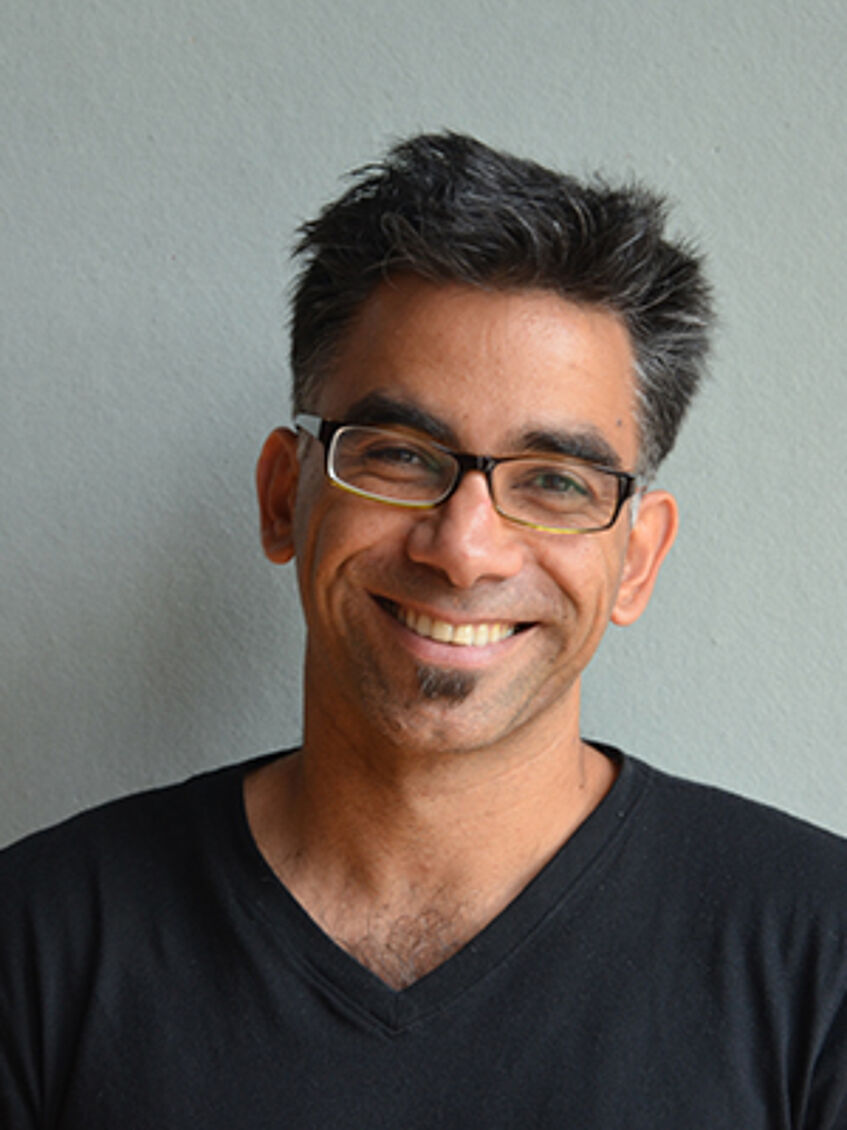
Ralf Gawlick
Ralf Yusuf Gawlick
Composer and assistant professor at Boston College, Massachusetts, USA; earned his doctorate at the New England Conservatory of Music (2001); works include solo, chamber, and orchestral compositions as well as music for theatre and film; performances throughout the United States and Europe; music available through Brazinmusikanta Publications, ECS Publishing and released on Capstone Records and Musica Omnia.
Selected Compositions and Publications: Concerto Concertante per Sei Instrumenti, Capstone Records [CPS-8712] (2003); Solo and Chamber Works, Musica Omnia [MO 0309] (2010); Berlin Suite, music for „Writing on the Wall: Remembering the Berlin Wall”, documentary film by John Michalczyk; Kinderkreuzzug, Musica Omnia [MO 0406] and ECS Publishing (2010); Missa gentis humanæ (2010); Quando il Fiume Giallo si acchiararà (Frammenti riccianni) (2011); Sorores (Frauenpartita) (2011).
Ernest Gnan

Ernest Gnan
Ernest Gnan
Secretary General, SUERF – The European Money and Finance Forum; Honorary Economic Advisor to the Governor of the Oesterreichische Nationalbank; head of the OeNB’s Economic Analysis Division between 1999–2022; member of the European Central Bank’s Monetary Policy Committee from 2000–2022, and for over a decade expert member of the Austrian Fiscal Council; between 2010–2018 alternate member of the Austrian Competition Commission; giving numerous lectures on macroeconomics, monetary policy, EMU, European integration, and the financial and sovereign debt crisis; for several years adjunct professor at Webster University Vienna and lecturer at the German Association for Financial Analysts; since 2005, lecturer at the University of Vienna, and since 2006 lecturer at the Austrian Academy of Accountants; in 2019, awarded the title Professor by the President of the Republic of Austria in recognition of his contributions to science and research.
His publications cover monetary policy; central banking; inflation and inflation expectations; macroeconomic imbalances; financial markets, banking and financial regulation; globalisation; economic growth; economic, institutional and legal aspects of EMU; exchange rate policy, the European and international monetary system, banking and finance.
Eva Heinen
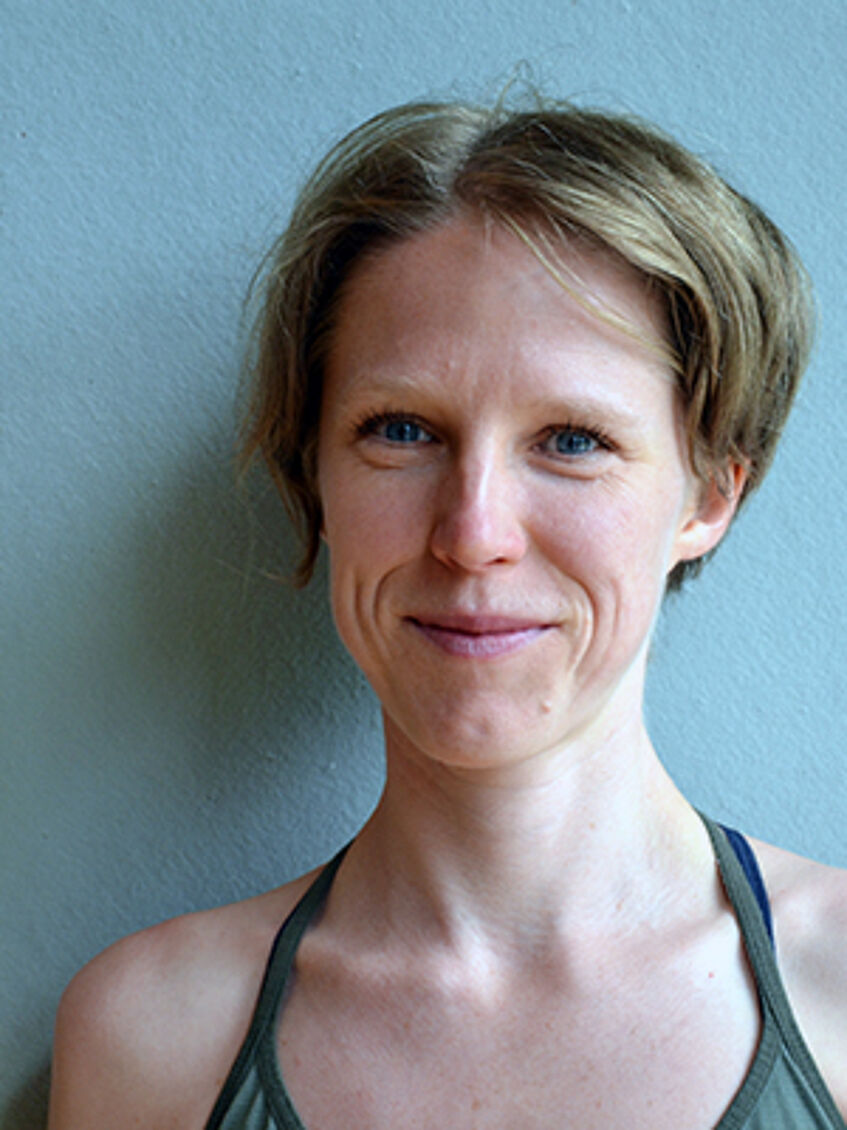
Eva Heinen (© SHS)
Eva Heinen
Mag.; studied Educational Science, Arts and Psychology at the University of Munich and the University of Barcelona, and German as a Foreign Language at the University of Vienna; work experience in lecturing at the University of Oulu, Finland, working as a trainer at the Teacher Education Center (CEP) in Santa Cruz de Tenerife, Spain, and teaching German as a Foreign Language (DaF) for several private organizations; worked as an editorial journalist for Österreich Spiegel; currently teaches German as a Foreign Language and Yoga and works as an examiner for the ÖSD Austrian Language Diploma.
Verena Krausneker
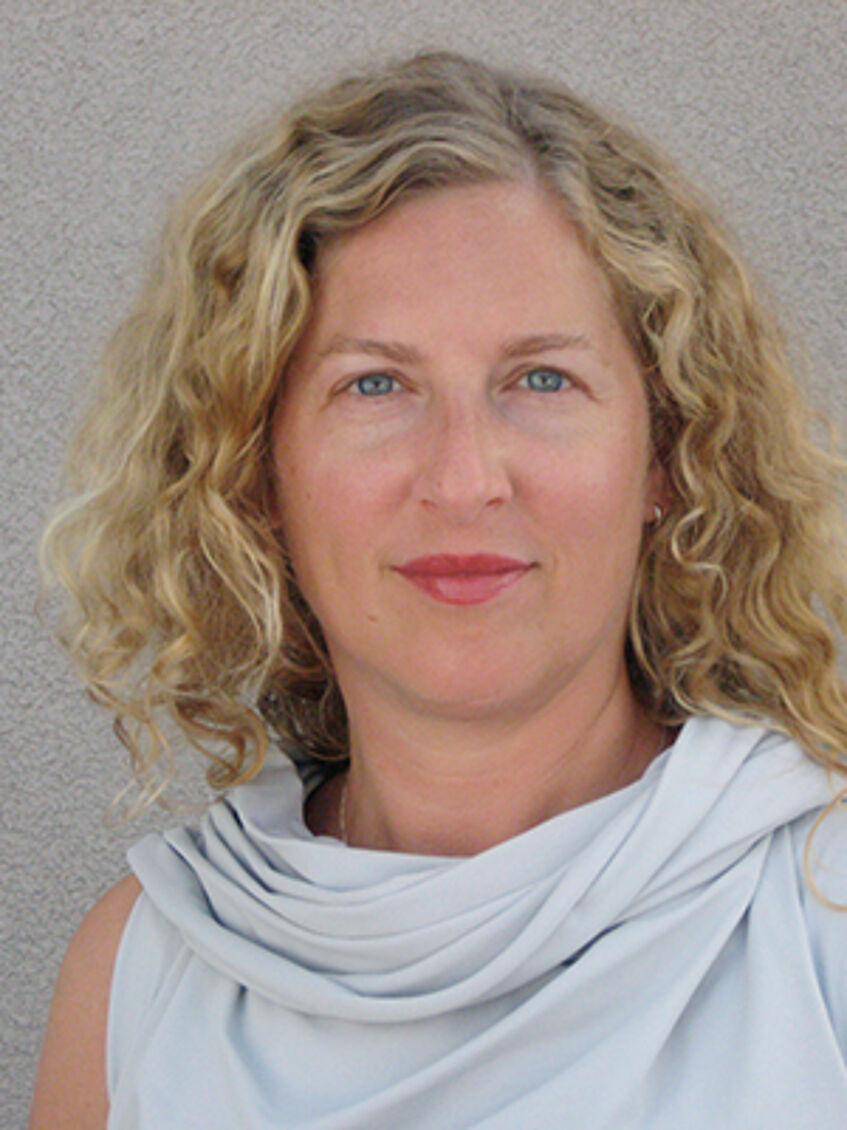
Verena Krausneker
Verena Krausneker
PhD in linguistics; expert on sign language policies in Europe and Deaf language communities; teaches at the Dept. of Education and the Dept. of Linguistics of the University of Vienna; visiting professor at the Dept. of German Sign Language of the University of Hamburg in 2007/08; non-academic activities in NGOs include e.g.: nominated World Federation of the Deaf expert (2009 – 2015), board member of Austrian Association of the Deaf (2001-2007), board member of the Austrian anti racist NGO ZARA (1999-2005).
Selected publications: Language use and awareness of Deaf and hearing children in a bilingual Setting In: Sign Bilingualism. Language Development, Interaction, and Maintenance in Sign Language Contact Situations (2008); 8 short films on "Deaf Austrians in National Socialism" www.univie.ac.at/gehoerlos-im-ns (2010); together with Sherman E. Wilcox and David F. Armstrong: Language Policies and the Deaf Community In: Cambridge Handbook of Language Policy (2012); Österreichische Gebärdensprache ist anerkannt In: Klagenfurter Erklärung revisited (2013).
Sylvia Kritzinger
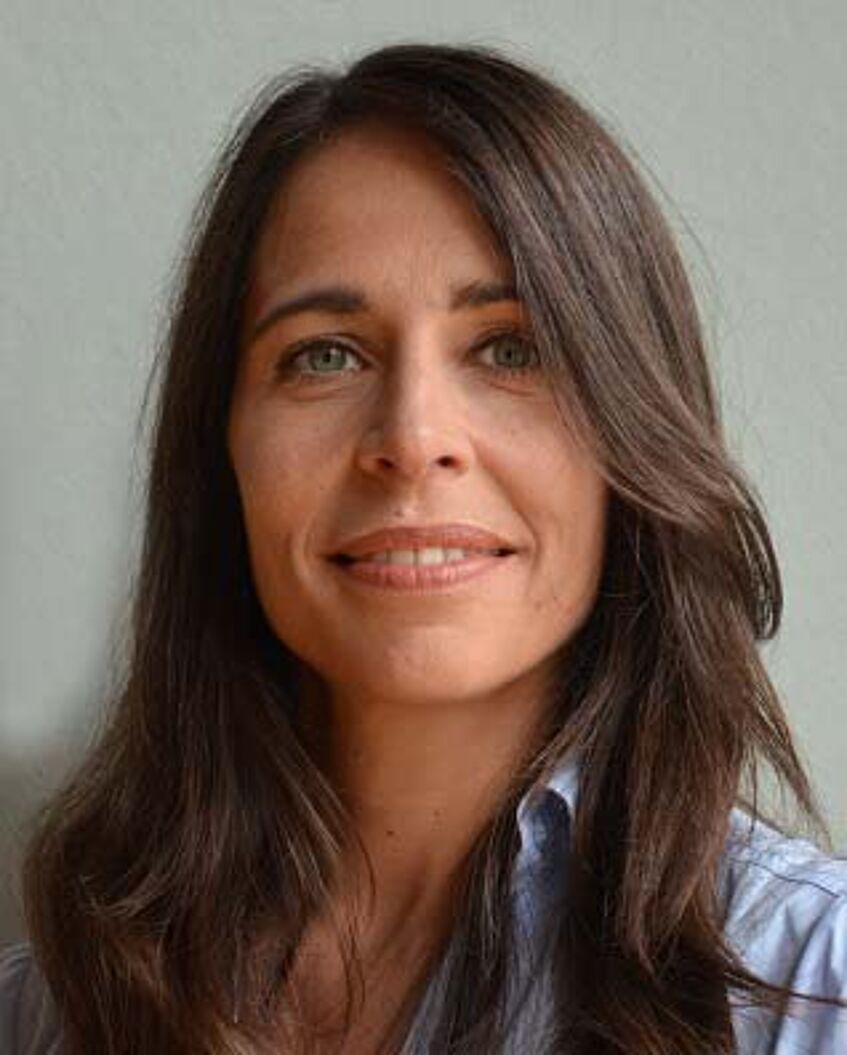
Sylvia Kritzinger (© SHS)
Sylvia Kritzinger
Professor for Methods in the Social Science at the Department of Government (University of Vienna); Director of the Research Centre Vienna Centre for Electoral Research (VieCER); Principal Investigator of the Austrian National Election Study (AUTNES - Demand Side); Project Director of Digitize! Computational Social Sciences in the Social and Digital Transformation and the Research Network Interdisciplinary Research into Values; former Assistant Professor at the Institute for Advanced Studies (IHS-Vienna); former Lecturer at the Department of Political Science, Trinity College, Dublin.
Selected Publications: together with W. Lutz and V. Skirbekk: The Demography of Growing European Identity (2006); together with M. Wagner and D. Johann: Voting at 16: Turnout and the Quality of Vote Choice (2012); together with J. Aichholzer, M. Wagner and E. Zeglovits: How has radical right support transformed established political conflicts? The case of Austria (2013); together with S.A. Banducci and H. Giebler: Knowing More from Less: How the Information Environment Increases Knowledge of Party Positions (2017); together with D. Johann, K. Kleinen-von Königslöw and K. Thomas: Intra-Campaign Changes in Voting Preferences: The Impact of Media and Party Communication (2018); together with C. Plescia, K. Raube, J. Wilhelm and J. Wouters: Assessing the 2019 European Parliament Elections (2020); together with J. Partheymüller and C. Plescia: Misinformedness About the European Union and the Preference to Vote to Leave or Remain (2022); together with T. Bernauer, D. Jahn, P.M. Kuhn and S. Walter: Einführung in die Politikwissenschaft (2022).
Katharina Kurzmann
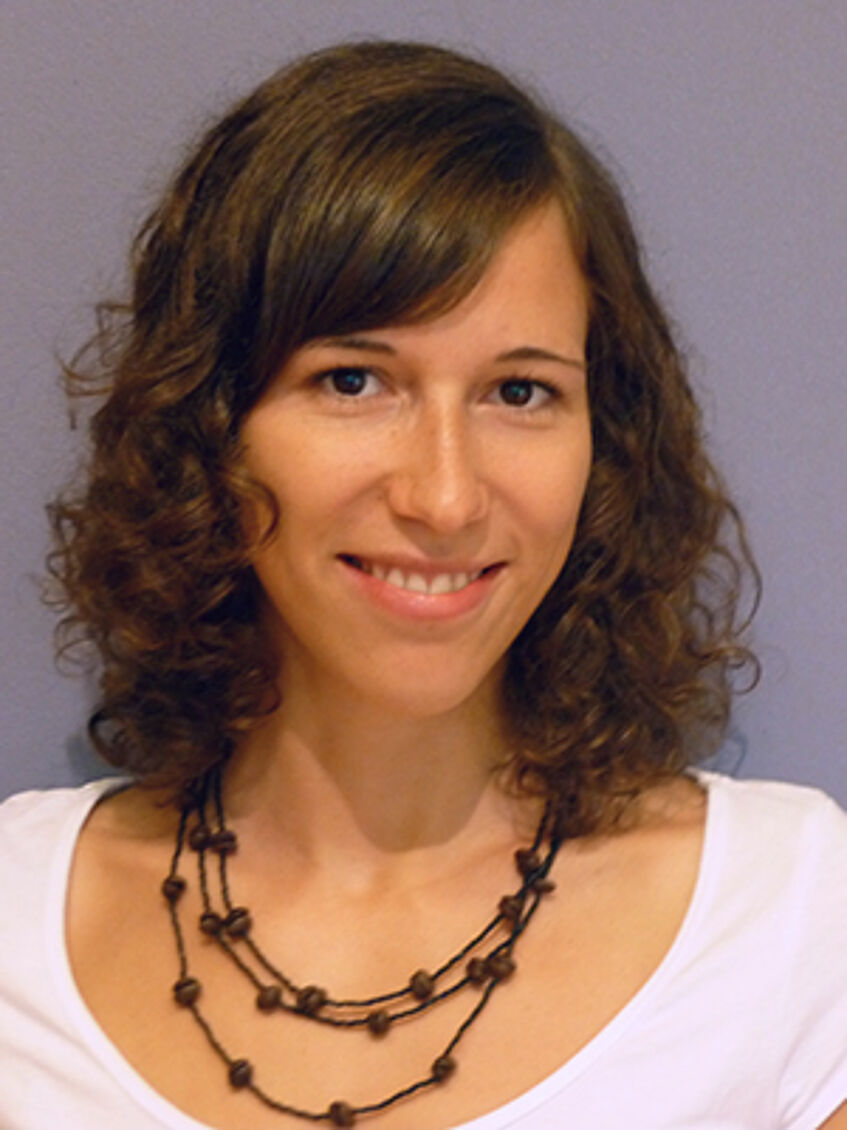
Katharina Kurzmann (© SHS)
Katharina Kurzmann
Mag., MSc; studied English, Development Studies and German as a Foreign Language at the University of Vienna and at the Università degli Studi di Padova, Italy; completed a Master program in Social Work at the Danube University, Krems; German language training experience at several private language institutes and NGOs in Austria and Italy as well as at the National Autonomous University of Mexico and the Vienna University of Technology; currently works as a German language trainer, ÖSD (Austrian Language Diploma) examiner, and social counselor for migrant women in Vienna.
Claudia Kwapil
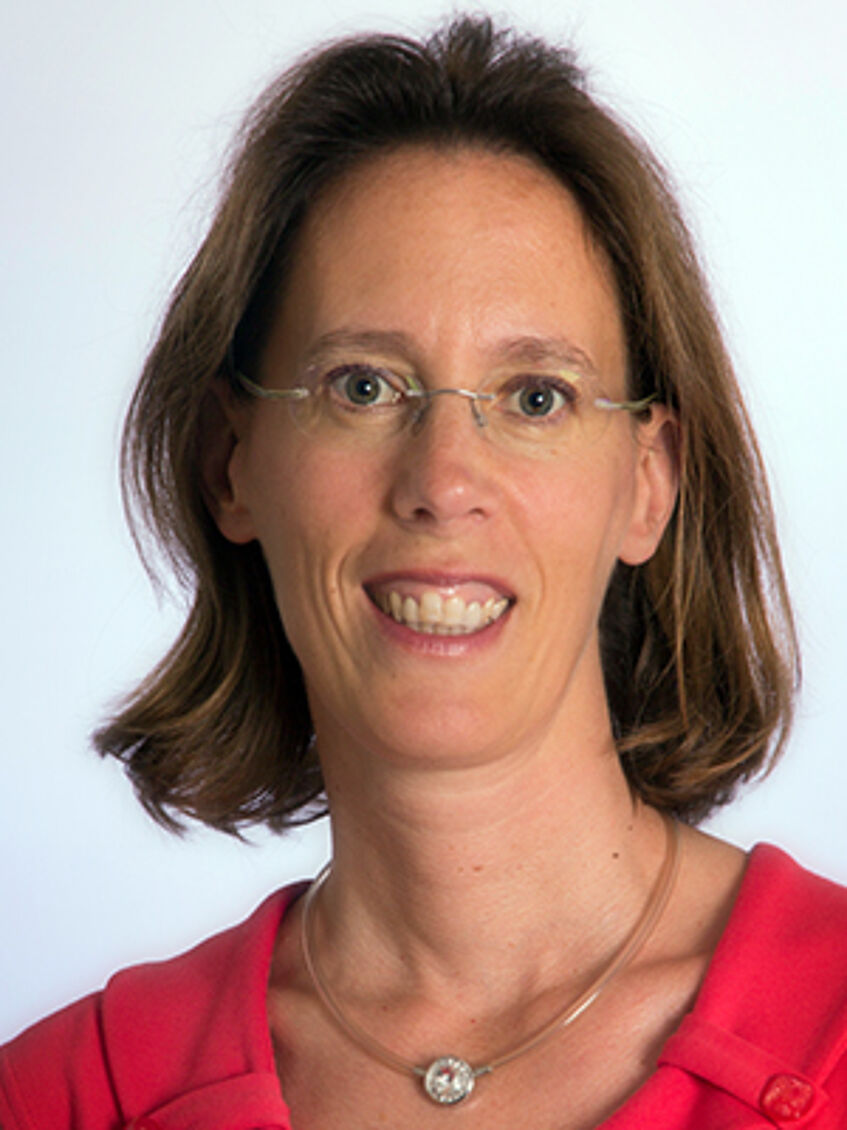
Claudia Kwapil (© Oesterreichische Nationalbank)
Claudia Kwapil
Studied economics in Vienna (Mag.a from the University of Vienna, 1997) and in London (MSc from the London School of Economics and Political Science, 2002) and finished her PhD at the University of Economics and Business in Vienna in 2011; currently she holds the position of a Senior Principal Economist at the Monetary Policy Section of the Oesterreichische Nationalbank (Central Bank of Austria); her fields of interest include monetary policy transmission, monetary policy implementation and nominal rigidities (rigid interest rates, rigid wages, rigid prices).
Selected Publications: together with S. Fabiani et al.: Wage Rigidities and Labor Market Adjustment in Europe, In: Journal of the European Economic Association, 8 (2010); together with J. Scharler: Expected Monetary Policy and the Dynamics of Bank Lending Rates, In: International Review of Economics and Finance, 27 (2013); together with K. Rieder: The effects of the monetary policy response to the COVID-19 pandemic: preliminary evidence from a pilot study using Austrian bank-level data, In: Monetary Policy & the Economy Q4/20–Q1/21 (2021); together with R. Ferstl and B. Graf: The pass-through of policy interest rates to bank retail rates in Austria, In: Monetary Policy & the Economy Q4/23 (2023).
Franz-Stefan Meissel

Franz-Stefan Meissel
Franz-Stefan Meissel
Professor of Roman Law and History of European Private Law, University of Vienna; Visiting Professor at the Université Paris Cité and Professorial Lecturer at the Diplomatic Academy in Vienna; Director of the Sommerhochschule; Vice Dean of the University of Vienna School of Law; Speaker of the University of Vienna Advanced Research School in Law and Jursiprudence (Ars Iuris Vienna); chief editor of the Online Journal University of Vienna Law Review; since 2023 elected member of the Academia Europaea.
Selected Publications: Societas (2004, Premio Boulvert 2004); together with N. Benke: Textbooks on the Roman Law of Obligations (2021) and the Roman Law of Property (2024); co-author of: Nationalsozialistisches Steuerrecht und Restitution (2006); Le Code civil autrichien. Un autre bicentenaire (2015); Privatrecht in unsicheren Zeiten. Zivilgerichtsbarkeit im Nationalsozialismus (2017); Grundbegriffe der Rechtswissenschaften (5th ed. 2023).
Sabine Melnicki
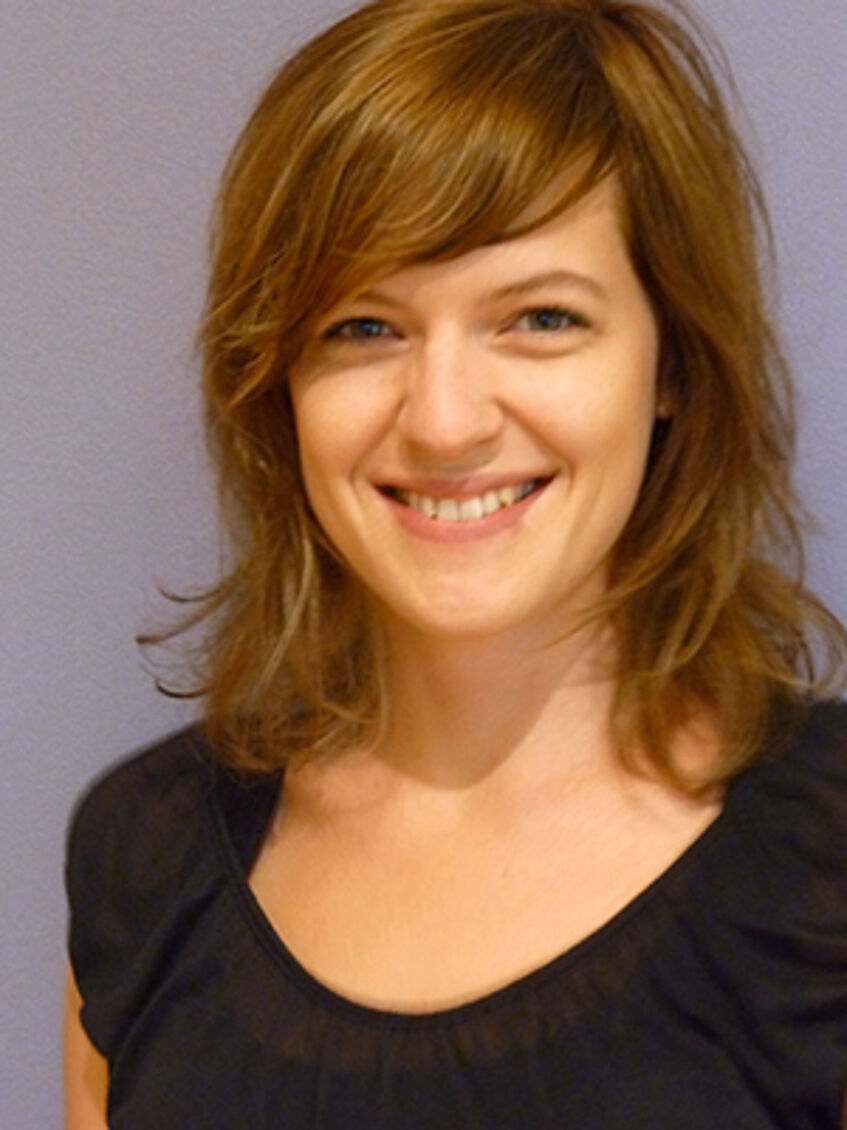
Sabine Melnicki (© SHS)
Sabine Melnicki
Studied German Literature and Linguistics (with a special focus on German as a Foreign Language), English and Swedish Language at the University of Vienna and at the University College London; German language training experience at several private and public institutes, including Österreich Institut Warsaw and Dokkyo University in Tokyo.
Werner Neudeck
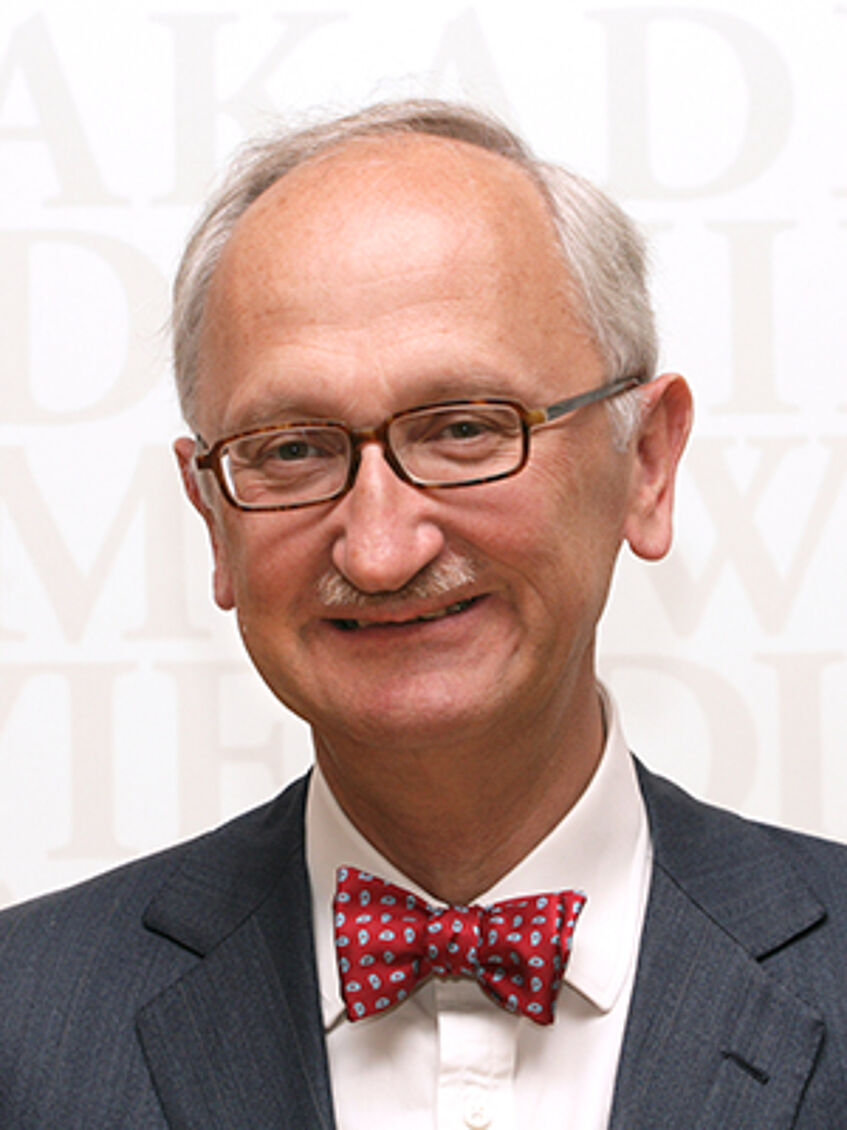
Werner Neudeck
Werner Neudeck
Studied at the University of Vienna (Mag. and Dr. rer.soc.oec.) and the University of Oxford; Professor Emeritus of International Economics and Chairman of the Academic Board at the Diplomatic Academy of Vienna; 1997-2020 Academic Dean of the Master of Advanced International Studies Program (University of Vienna/Diplomatic Academy of Vienna); former AGIP Professor of International Economics at the Bologna Center of the Johns Hopkins University SAIS (1994-1997) and Senior Economist of the International Monetary Fund at the Joint Vienna Institute.
Selected Publications: Fee-for-Service and Quantity Rationing in the Physician Services Market (1991); together with E. Streissler: Wachstums- und Umweltpolitik (1994); together with K. Podczeck: Adverse Selection and Regulation in Health Insurance Markets: An Analysis of Recent Policy Proposals (1996); Das österreichische Gesundheitssystem: Eine ökonomische Analyse (2002); The Global Impact of the EU as an Economic and Monetary Actor (2004).
Christine Neuhold
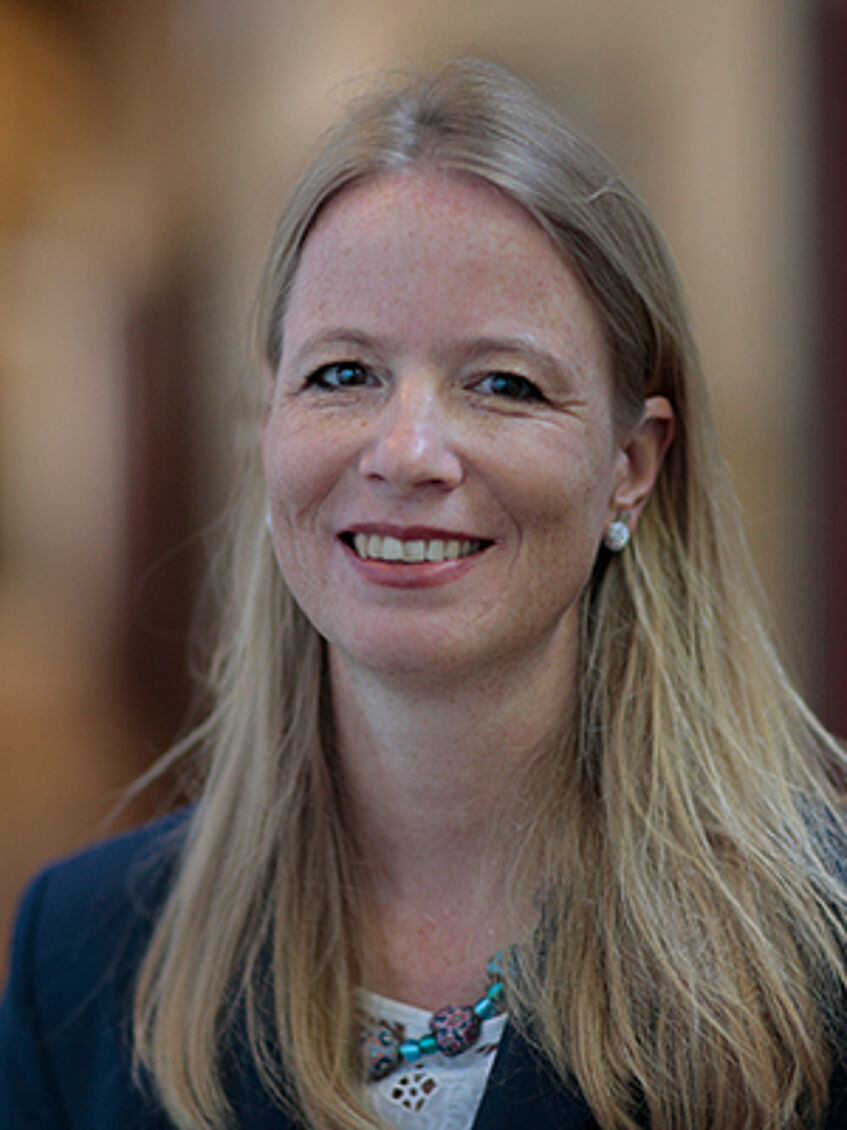
Christine Neuhold
Christine Neuhold
Director of the Research Programme Politics and Culture in Europe, Maastricht University (UM), Director of the UM Campus Brussels; Professor of EU Democratic Governance at the Faculty of Arts and Social Sciences, UM; Visiting Lecturer at the Diplomatic Academy in Vienna and at the University of Bonn; Doctoral Degree in Political Science from the University of Vienna (2000); her research focuses on accountability in networked systems of governance.
Selected publications: together with M. Dobbels: Paper-keepers or policy shapers? The role of unelected officials in the European Parliament, in: Comparative European Politics, 13:5, (2015); together with K. Auel: Multi-Arena Players in the Making? Conceptualising the role of national parliaments since the Lisbon Treaty, in: Journal of European Public Policy (2017); together with G. Rosen: Out of the shadows, into the limelight: Parliaments and politicisation, in: Politics and Governance 7(3), (2019);
Hanspeter Neuhold
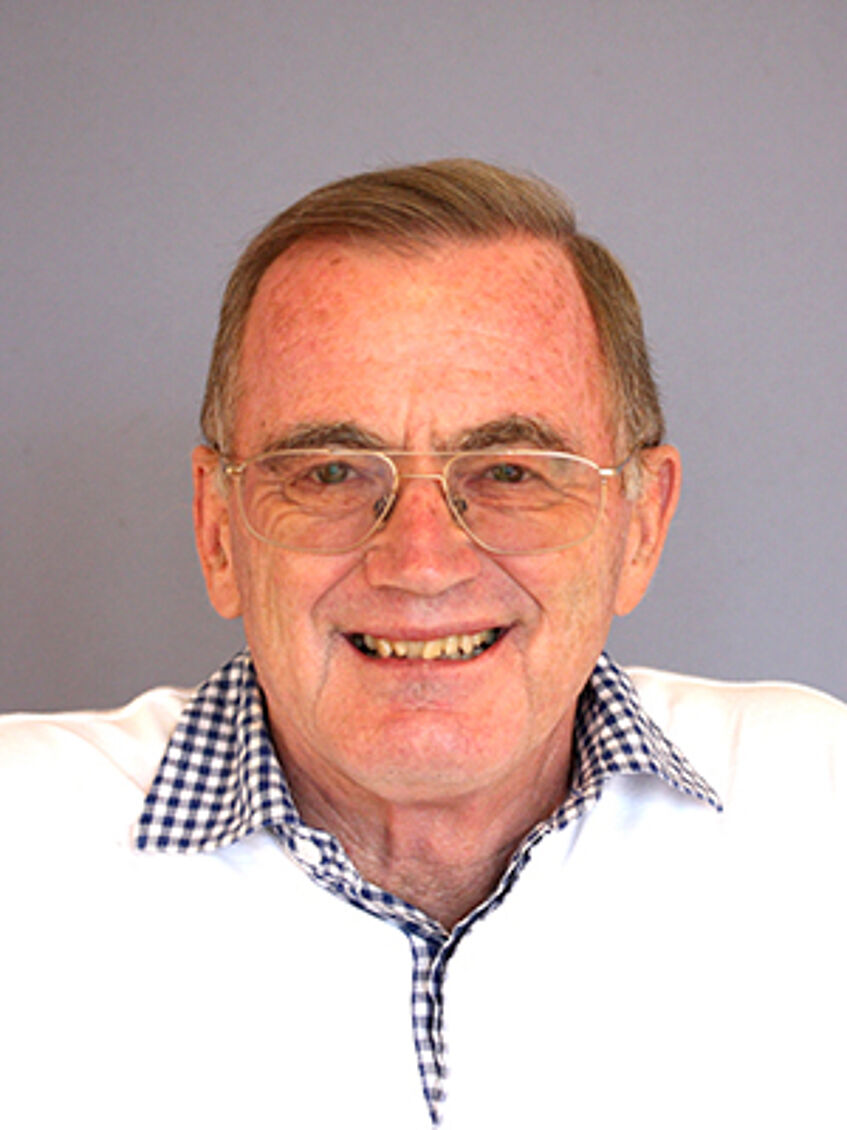
Hanspeter Neuhold (© SHS)
Hanspeter Neuhold
Professor emeritus of International Law and International Relations, University of Vienna; Academic Director of the Master of Advanced International Studies Program, University of Vienna/Diplomatic Academy Vienna; former Director of the Austrian Institute for International Affairs; Visiting Professor at Carleton University (1978), Stanford University (1998), University of Leiden (2001), and College of Europe (since 2006).
Selected Publications: Human Rights and the Use of Force (2007); The European Union as an International Actor: Responses to Post-Cold War Challenges (2010); The Return of Piracy: Problems, Parallels, Paradoxes (2012); Kosovo: A Testing Ground for International Crisis Management and Dispute Settlement (2012); The Return of History in the Balkans after the Cold War: International Efforts at Crisis Management and Conflict Resolution (2013).
Christopher Peroutka

Christopher Peroutka (© SHS)
Christopher Peroutka
Mag. phil.; High school teacher, tennis and swimming instructor, windsurfing coach, mountain guide, basketball and volleyball trainer, certified skiing and snowboarding instructor, former player in the Austrian National Team Ultimate Frisbee; lecturer at the University of Vienna and the Pedagogic Academy in Vienna; teaching experience in Austria, the Netherlands and Indonesia.
Alexandra Pölzlbauer
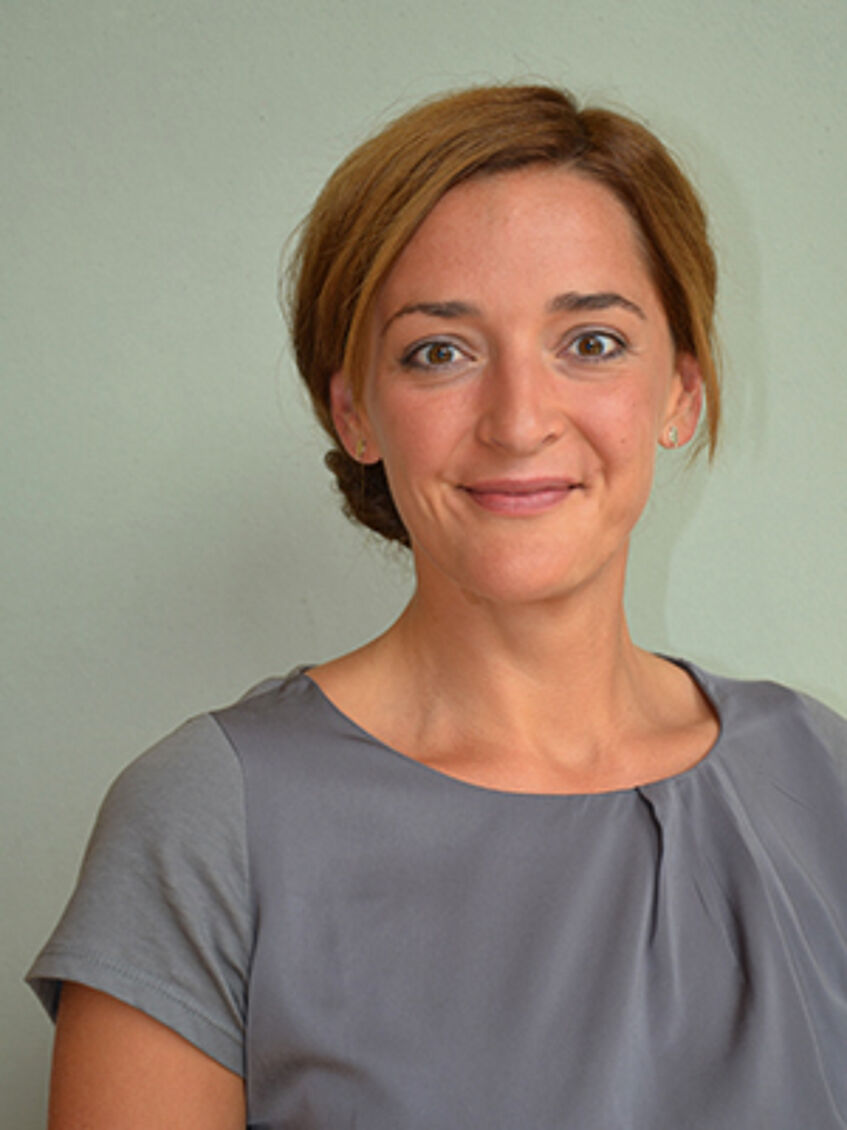
Alexandra Pölzlbauer (© SHS)
Alexandra Pölzlbauer
Dr., MA (University of Illinois at Urbana-Champaign, USA), Mag. phil. (University of Vienna, Austria); studied German, German as a Foreign Language, English and History; research areas: Globalization, Migration & Transcultural Exchange, Newer Austrian and German Literature/Film; currently she is teaching in the Austria-Illinois Exchange Program of the Vienna University of Economic and Business Administration, at Webster Vienna Private University and in the Centre for International Education & Mobility (CIEM) at the Fachhochschule Wien.
Selected Publications: Im Deutschunterricht hamma Deutsch? Vom Chancenreichtum im mehrsprachigen Klassenzimmer. In: Becker, S. H. and Schöneberger, S. (Hrsg.) Deutsch 5-10, Heft 23 (2010); Public Attitudes towards the EU: Anti-, Pro-, or No-? In: EUC Blog, European Union Center at the University of Illinois (2011) http://eucenterillinois.blogspot.de/2011/11/public-attitudestowards-eu-anti-pro-or.html; Fünf Beispiele zur Diskussion der ‚Andersartigkeitʻ im DaF/DaZ-Unterricht. In: ÖDaF-Mitteilungen, Heft 1 (2013).
Bernhard Schima
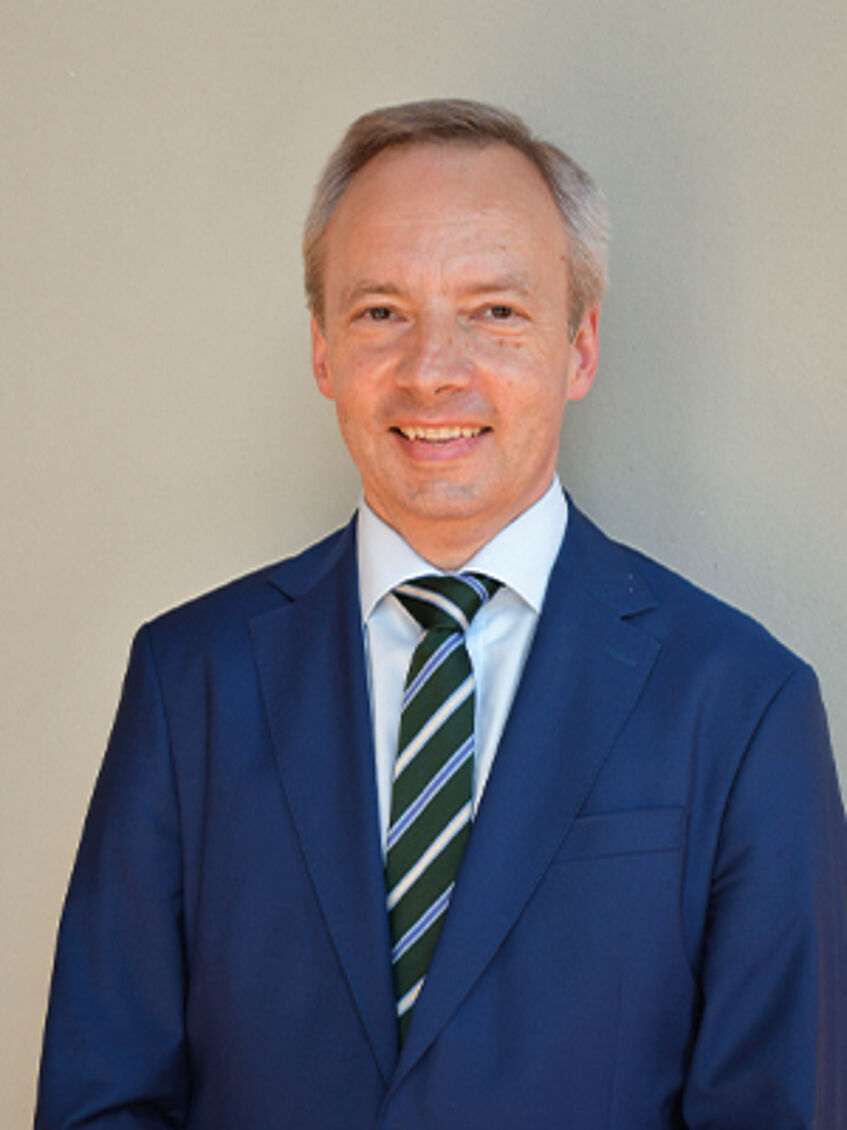
Bernhard Schima (© SHS)
Bernhard Schima
Director and Principal Legal Adviser in the European Commission's Legal Service; studied law in Vienna (magister iuris 1991, doctor iuris 1994) and Paris and at Harvard Law School (LL.M. 1994); from 1995 to 2003 member of the chambers of Judge Dr Peter Jann at the Court of Justice of the EU; joined the European Commission’s Legal Service in 2003; postdoctoral qualification to lecture in European law (Habilitation) obtained at the University of Graz in 2004; honorary professor of European Law at the Vienna University of Economics and Business (since 2010).
Selected publications: Das Vorabentscheidungsverfahren vor dem EuGH. Unter besonderer Berücksichtigung der Rechtslage in Österreich und Deutschland (3rd ed. 2015); EU fundamental rights and Member State action after Lisbon: putting the ECJ's case law in its context, Fordham International Law Journal 2015, 1097-1133; author and co-author of several contributions in: Jaeger/Stöger (eds.), Kommentar zu EUV und AEUV, and in: Kellerbauer/Klamert/Tomkin (eds.), Commentary on the EU-Treaties and the Charter of Fundamental Rights (2nd edition 2024).
Walter Suntinger

Walter Suntinger
Walter Suntinger
Current/former lecturer, University of Vienna, Johns Hopkins University – Bologna Center, University of Oregon (study abroad program in Vienna), the European Peace University in Stadschlaining; free-lance human rights consultant and trainer; Managing Partner in HumanRightsConsulting Vienna; consultancies in the fields of: human rights training, monitoring, implementation of human rights approaches in development and business on behalf of the Council of Europe, the OSCE, the UN, UNDP, the Austrian Ministry of Foreign Affairs, OMV AG, and Amnesty International; member of the Human Rights Advisory Board to the Austrian Ministry of the Interior; board member of the Association for the Prevention of Torture.
Selected Publications: Alle Menschenrechte für alle. Informationen zu Menschenrechten und Menschenrechtsbildung (together w. Barbara Weber 1999); academic co-author of Amnesty International, Combating Torture, A Manual for Action (2003); Menschenrechte und Polizei, Handbuch für TrainerInnen (2005).
Karl Vocelka
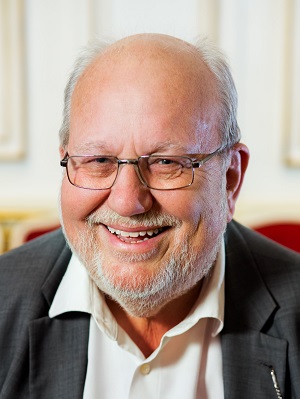
Karl Vocelka
Karl Vocelka
Retired Professor of History, former Head of the Department of History of the University of Vienna; former Visiting Assistant Professor at Stanford University; elected President of the Institut für die Erforschung der frühen Neuzeit; guest lecturer in numerous American programs in Vienna (University of Oregon, Duke University, Sweet Briar, IES etc.).
Selected Publications: Trümmerjahre. Wien 1945 – 1949 (1985); Die Habsburger. Eine europäische Familiengeschichte (1992); Geschichte Österreichs. Kultur – Gesellschaft – Politik (2000); Österreichische Geschichte (2005); Geschichte der Neuzeit 1500-1918 (2009); together with M. Vocelka: Franz Joseph I. Kaiser von Österreich und König von Ungarn 1830-1916. Eine Biographie (2015); together with W. Klinger: Wine in Austria. The History (2019), and more than 150 articles.
